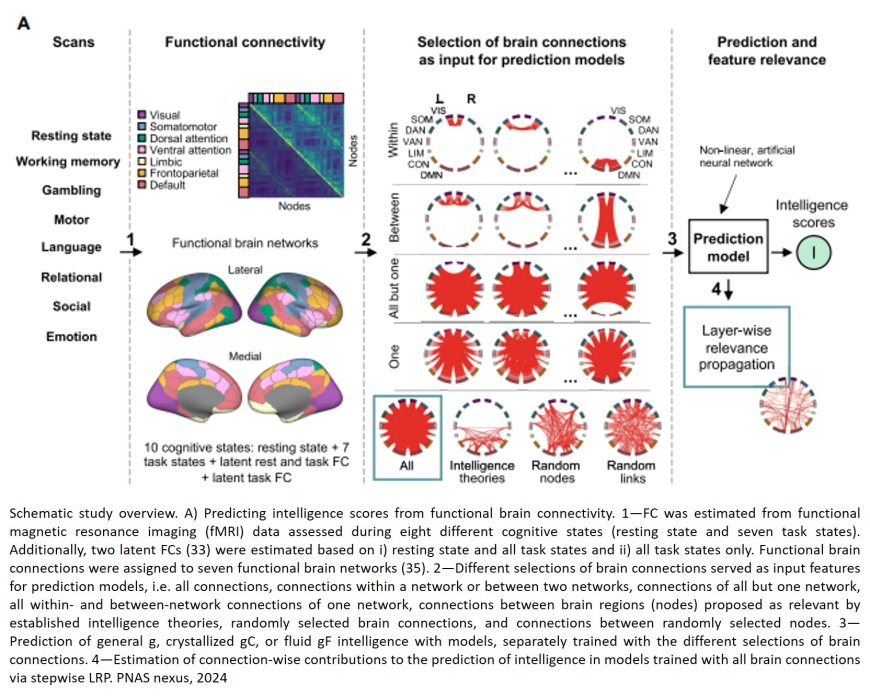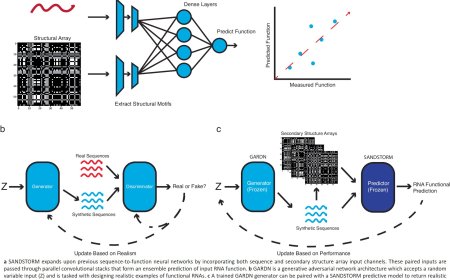Machine learning prediction of human intelligence

AI can predict human intelligence by looking at the connections of a working human brain. Neuroscientists can predict intelligence from brain structure and function—to a point. Previous studies have suggested that intelligence is widely distributed across the brain.
The researchers used machine learning models to predict multiple kinds of intelligence from brain connections of 806 healthy adults while resting and while completing tasks.
Fluid intelligence includes inductive and deductive reasoning abilities that do not rely on context, while crystallized intelligence reflects the ability to apply knowledge from individual experience and culture.
General intelligence captures both types of intelligence. The prediction performance of the model developed by the authors was highest for general intelligence, followed by crystallized intelligence, and then fluid intelligence.
Cognitively demanding tasks produced the most accurate predictions. Interestingly, models trained with connections between brain regions proposed in most popular neurocognitive intelligence theories outperformed models trained with the same number of connections between randomly chosen regions, which empirically supports these theories.
According to the authors, theory-driven models were outperformed by whole-brain models, indicating that there are still more aspects of intelligence waiting to be understood.
https://academic.oup.com/pnasnexus/article/3/12/pgae519/7915712













